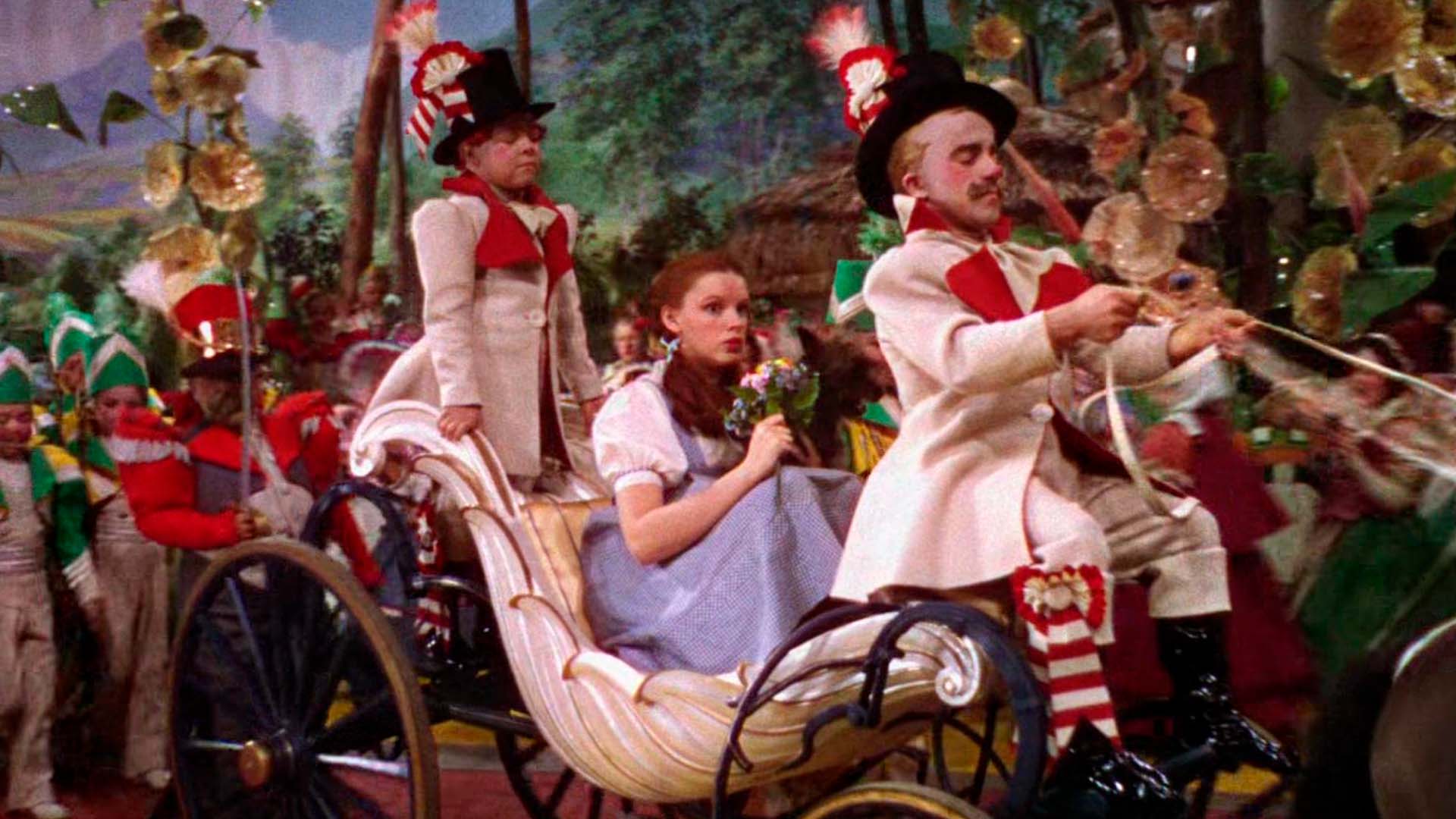Script supervisors: Mastering the art of script breakdowns in filmmaking
In the symphony of filmmaking, script supervisors form the backbone of the crew. Their vigilant attention to detail forms an unbroken chain of continuity from one scene to the next, ensuring a fluid movie experience for viewers.


The instrumental technique they utilize for such detailed task management is the craft of script breakdowns.
The duties of script supervisors in the realm of film
Script supervisors play a vital yet frequently underestimated role in the process of filmmaking. As guardians of narrative consistency, they collaborate closely with directors and editors to maintain the narrative integrity of the movie. Monitoring every minute of a scene, they record every detail to avoid any inconsistency. As custodians of the movie's timeline, script supervisors ensure scenes filmed in a non-sequential manner still maintain a fluid chronology in the finished product.
Mastering script breakdown
The process of script breakdown forms a crucial part of pre-production. It involves an in-depth analysis of a script to comprehend and organize every element that will feature on the screen. From roles and props to special effects and auditory requirements, each detail is meticulously logged for reference. This procedure creates a comprehensive guide for film production coordination, ensuring every department knows its requirements for each scene.
The usage of script breakdowns by script supervisors
Script breakdowns form the core tool for script supervisors to manage continuity. They scrutinize each scene thoroughly, pinpointing potential continuity errors that might surface during filming. Whether monitoring the usage of props and costumes, tracking character movements, or keeping a close watch on the dialogues to ensure they coincide with the script, script supervisors utilize the comprehensive reports from script breakdowns to prevent any inconsistencies, thereby preventing expensive re-shoots and post-production modifications.
The importance of script supervisors was underscored in the iconic film "The Wizard of Oz" (1939), where managing extensive sets, multiple characters, and intricate storylines was a massive undertaking. In modern-day filmmaking, the role of script supervisors has gained even more importance with the rise of complex narrative structures and detailed visual effects.

The path to becoming a script supervisor
Embarking on a career as a script supervisor requires a fervent passion, unwavering commitment, and specialized education. Here is a suggested path that can guide you toward this vocation:
- Obtain a basic education in film production: Many aspiring script supervisors initiate their journey by gaining a holistic understanding of the film production process. This can be attained through a Bachelor's degree in film production, media studies, or a related field. Familiarity with directing, cinematography, editing, and sound can prove invaluable, as a script supervisor will engage with all these departments.
- Acquire on-set experience: Practical experience is priceless in this industry. Consider internships, part-time roles, or even voluntary work on film sets. Comprehending the dynamics and workflows of a film set will furnish you with practical knowledge that is unattainable in a classroom setting.
- Enroll in a script supervision course: Specialized courses are available to train script supervisors. These cover subjects such as script breakdowns, continuity logging, scene timing, and collaborating with a director and editor. Institutions such as the National Film and Television School in the UK and the New York Film Academy in the US offer such courses.
- Cultivate organizational skills: Script supervisors must possess superior organizational skills. Managing extensive documentation, keeping track of every scene's detail, and managing various continuity elements are crucial aspects of the job. These skills should be developed throughout your education and early career stages.
- Network: Networking is essential in the film industry. Attending industry events, film festivals, and workshops can provide invaluable connections with industry professionals, potentially leading to job opportunities.
- Get certified: Although not a prerequisite, becoming certified can enhance your employability. Organizations such as the Script Supervisors/Continuity & Allied Crafts (SSC) offer membership and certification.
- Start your professional journey: Beginning as a trainee or assistant script supervisor can provide priceless experience. Over time, you can advance to become a full-fledged script supervisor.
Bear in mind that each script supervisor's journey can be unique, and what works for one may not work for another. Staying passionate, committed, and continually seeking opportunities to learn and improve is most crucial.
Esteemed script supervisors and their mark on film history
- June Randall: June Randall was a legendary script supervisor whose work on some of the most remarkable films in history stands testimony to her dedication. Her illustrious filmography includes James Bond classics like "Goldfinger" and "Dr. No", Stanley Kubrick’s "The Shining", and "Superman", among others. Her eye for detail made her an integral part of the productions she was part of.
- Angela Allen: With a career that spans over six decades, Angela Allen is a renowned name among script supervisors. Her collaboration with distinguished director John Huston on numerous films, including "The African Queen", "Moby Dick", and "The Misfits", stands testimony to her skills. Allen's sharp eye and precision played a pivotal role in maintaining continuity in these films.
- Martha Pinson: As a long-term associate of Martin Scorsese, Martha Pinson's significant contributions are visible in movies such as "Goodfellas", "The Departed", and "Shutter Island". Pinson's detailed script notes and breakdowns were crucial in preserving Scorsese's creative vision across complex narratives and timelines.
- Randi Feldman: Feldman has had a successful career in Hollywood, working on a wide range of films from "Jurassic Park III" and "Armageddon" to "Clerks II". Her adeptness for script supervision has made her a much sought-after professional in the industry.
- Mary Bailey: Mary Bailey is a script supervisor with an impressive body of work, including Steven Spielberg's "Schindler's List", "Jurassic Park", and "Saving Private Ryan", and Christopher Nolan's "Inception". Bailey’s meticulous approach and consistency have played a key role in these high-stakes, effects-driven movies.
These script supervisors epitomize the pinnacle of their profession, exemplifying the level of detail and dedication required in this critical yet often underappreciated role in film production.
Earnings and salaries of script supervisors
A script supervisor's salary can vary significantly based on several factors such as the size and budget of the production, the script supervisor's experience level, the production location, and whether the project is a union or non-union.
In the United States, while the Bureau of Labor Statistics does not provide a specific category, according to ZipRecruiter, the median salary for a script supervisor in the United States stands at $67,055 per year. However, salaries can range from $41,000 to $85,000 annually.
On a larger film or television production, a script supervisor might earn between $300 and $500 per day, potentially leading to a significantly higher annual income if working consistently. Union rates can be even higher, with weekly wages reaching around $2,000 or more. Conversely, a script supervisor starting their career on smaller or independent productions might earn less.
These figures are estimates and may change with the dynamic nature of the film industry. For the most accurate information, it's best to refer to the relevant union or guild rates or directly engage with industry professionals.
Remember that a career as a script supervisor, like many roles in film and TV production, is often more about the love for storytelling and the craft of filmmaking than potential earning power. Nonetheless, with experience and a robust professional network, script supervisors can earn a comfortable living while playing a vital role in bringing narratives to life on screen.
Conclusion
The film industry may magnify the roles of directors, actors, and cinematographers, but the precision and consistency brought in by script supervisors are of equal importance. They are the unsung heroes of filmmaking, ensuring the director's vision is captured while maintaining attention to every minute detail. Tools like Filmustage, with advanced AI-driven features for script breakdowns and scene analysis, offer a competitive edge for those aspiring to embark on this challenging yet rewarding career.
Their tireless, unseen efforts behind the scenes enable the magic we witness on the big screen, making them essential in the sphere of film production. They are the true maestros of script breakdown, transforming a script into an engaging, coherent, and captivating cinematic reality.
From Breakdown to Budget in Clicks
Save time, cut costs, and let Filmustage’s AI handle the heavy lifting — all in a single day.